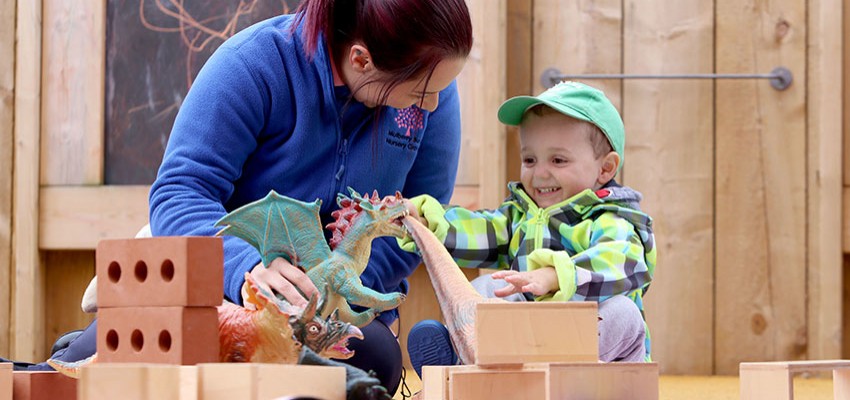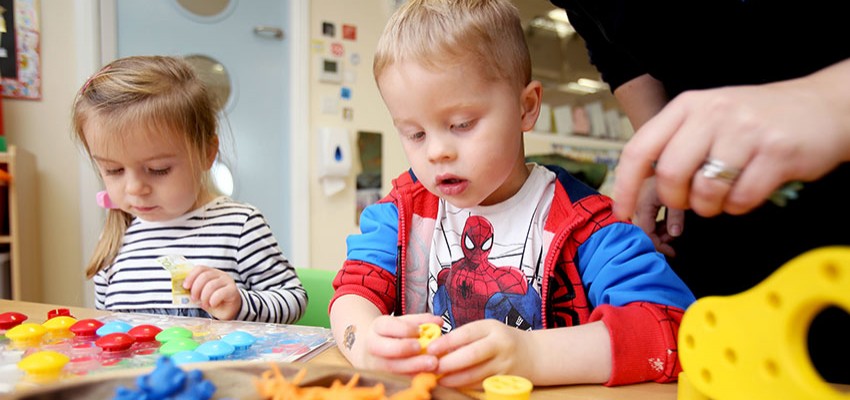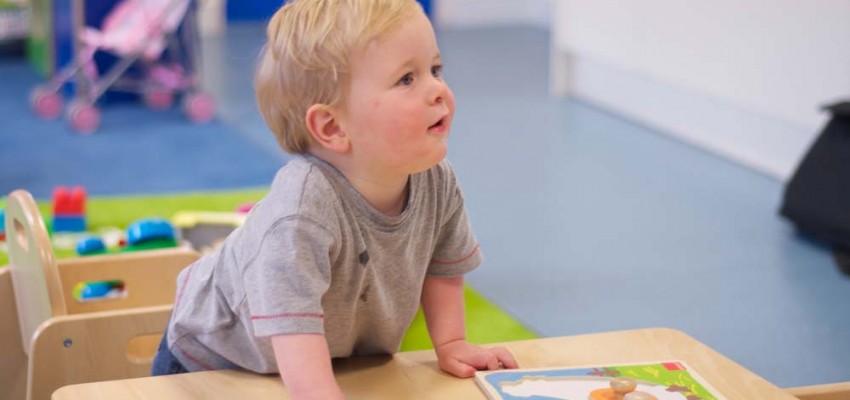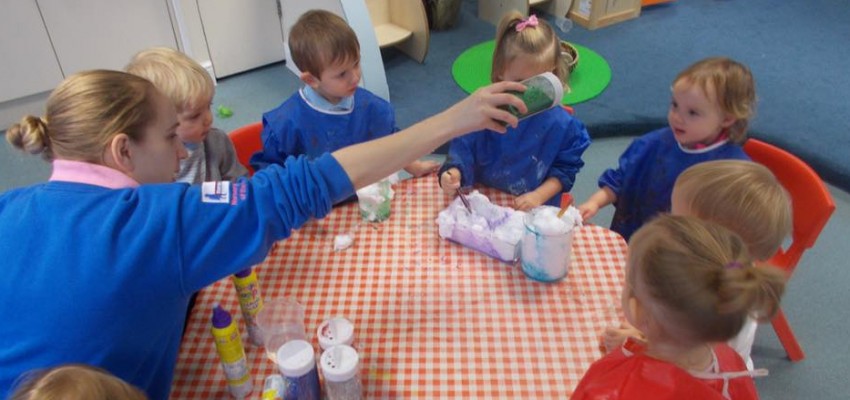Curriculum
We work closely with parents to keep them informed about their child’s progress. A named member of staff is assigned to each individual child to support their development and act as their key point of contact for the parent/carer. This key person will ensure that they are meeting the specific needs of the child and their all-round development.
Early Years Foundation Stage
We implement the Early Years Foundation Stage (EYFS) in all of our nurseries. The EYFS is a structure of learning, development and care for children from birth to five years old, effectively a play based curriculum introduced in 2008 by the government which is compulsory for all childcare settings. It is designed to ensure that children learn through play and it continues to apply to all children until the end of their reception year in primary school.
The EYFS was updated in 2012 as a result of a review carried out by Dame Tickell in 2011. The EYFS now sets out seven areas of learning and development for children, three prime areas, which are (1) communication and language, (2) personal, social and emotional development, and (3) physical development and four specific areas, which are (4) literacy, (5) understanding of the world, (6) mathematics and (7) expressive art and design.
We ensure that our key persons work closely with individual children, observing their particular interests and planning activities for them based around those interests which help to promote their learning and development. We have a sophisticated tracking and assessment system in place to make sure that we have a clear understanding of each child’s stage of development and how we can best support their further development.
Should you have any questions about any aspects of the EYFS and how we will implement it for your child, please speak to any of our managers who will be pleased to discuss it further.
Parents and carers along with nurseries and schools stimulate children’s early interest in literacy by exploiting play, stories, songs, and rhymes to provide lots of opportunities and time to talk with children about their experiences and feelings.
Our pre-school children all take part in a high quality phonics programme called Letters and Sounds. This was published by the Department of Education and Skills in 2007. Phase one of this programme is followed in the early years and it continues throughout primary school, up to phase six. The programme is designed to promote and develop your child’s speaking and listening skills. It equips them with phonic knowledge and skills, paving the way to make a good start on reading and writing. The Letters and Sounds documentation is available to peruse at all of our nurseries.
Talking and Listening
Phase one phonics activities are divided into seven aspects, environmental sounds, instrumental sounds, body sounds, rhythm and rhyme, alliteration, voice sounds and finally oral blending and segmenting.
We plan lots of activities at nursery to give the children opportunities to develop their communication and language skills.
Mark making is the first step towards writing. Mark making in the early stages is closely linked to physical development. The more opportunities your child has to develop large and small movement in their arms, hands and fingers, the easier it will be to make marks with a variety of tools. Through their marks, children are communicating their ideas, expressing their feelings and developing their imagination and creativity.
Make time to listen to your child talking by turning off the TV or mobile phone. Take the opportunity to encourage discussion - during the journey to and from nursery, whilst on the bus or out walking, in the car, during meal times and bath times.
Show that you are interested in what they are talking about, respond and challenge their vocabulary with questions.
Listen to music together and use household items to create instruments that make different sounds. Spend time enjoying reading stories together with your child every day and ask them to re-tell the story back to you. You may want to think about joining a library.
Sing and listen to rhymes together, encourage your child to make up their own rhymes.
Provide a variety of opportunities for your child to experiment with mark making using paint, pens, pencils, stamps, play dough, foam, sand and use them on a variety of surfaces such as paper, cardboard and material.
It is important not worry, relax and be patient with your child, remember to keep talking and encouraging your child.
Encourage your child to be involved in making decisions such as choosing their favourite story, going to the supermarket to choose paints, pens etc.
Let your child see you enjoying reading and writing.
Spread books around the house for your child to access if they choose to.
Read favourite books over and over again; really express yourself using different voices for different characters and using different facial expressions.
Make words together out of magnetic letters.
Create your own story in a scrap book using pictures and stickers.
Talk about what words mean with children therefore extending their vocabulary.
© Copyright 2025 All Rights Reserved. Mulberry Bush Nursery Group Limited | Website by: Nursery Hub




